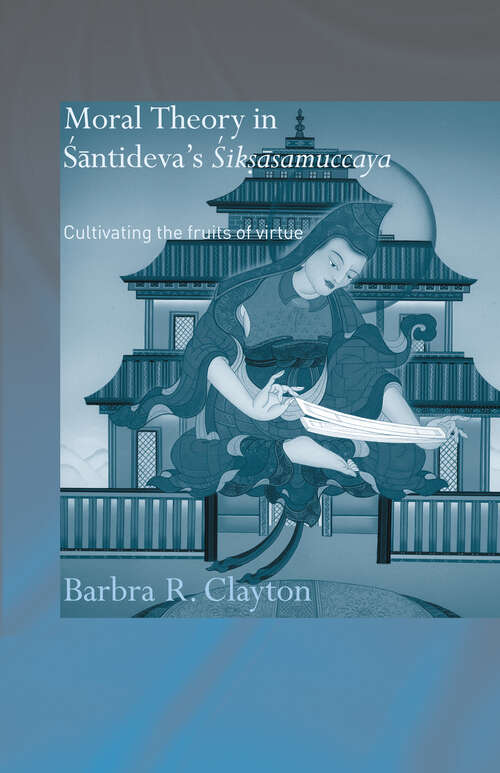Moral Theory in Santideva's Siksasamuccaya: Cultivating the Fruits of Virtue (Routledge Critical Studies in Buddhism)
By:
Sign Up Now!
Already a Member? Log In
You must be logged into Bookshare to access this title.
Learn about membership options,
or view our freely available titles.
- Synopsis
- This important text analyzes the moral theory of the seventh century Indian Mahayana master, Santideva, author of the well-known religious poem, the Bodhicaryavatara (Entering the Path of Enlightenment) as well as the significant, but relatively overlooked, Siksasamuccaya (Compendium of Teachings). With particular focus on the Siksasamuccaya, this book uses original translations and critical analysis in order to answer the question: How would Santideva’s ethics be understood in terms of Western moral theory? Santideva’s ethical presuppositions and moral reasoning are illuminated by analyzing his key moral terms and comparing them to other Buddhist principles. By focusing on a neglected Buddhist Sanskrit text by a major Mahayana figure, Barbra R. Clayton helps to redress a significant imbalance in the scholarship on Buddhist ethics, which has - up to now - focused primarily on the ethics of the Pali literature as interpreted in the Theravada tradition.
- Copyright:
- 2005
Book Details
- Book Quality:
- Publisher Quality
- Book Size:
- 176 Pages
- ISBN-13:
- 9781134278282
- Related ISBNs:
- 9780415599351, 9780415346962, 9780203639962
- Publisher:
- Taylor and Francis
- Date of Addition:
- 11/08/21
- Copyrighted By:
- Barbra R.Clayton
- Adult content:
- No
- Language:
- English
- Has Image Descriptions:
- No
- Categories:
- History, Nonfiction, Religion and Spirituality, Social Studies
- Submitted By:
- Bookshare Staff
- Usage Restrictions:
- This is a copyrighted book.
Reviews
Other Books
- by Barbra R. Clayton
- in History
- in Nonfiction
- in Religion and Spirituality
- in Social Studies
